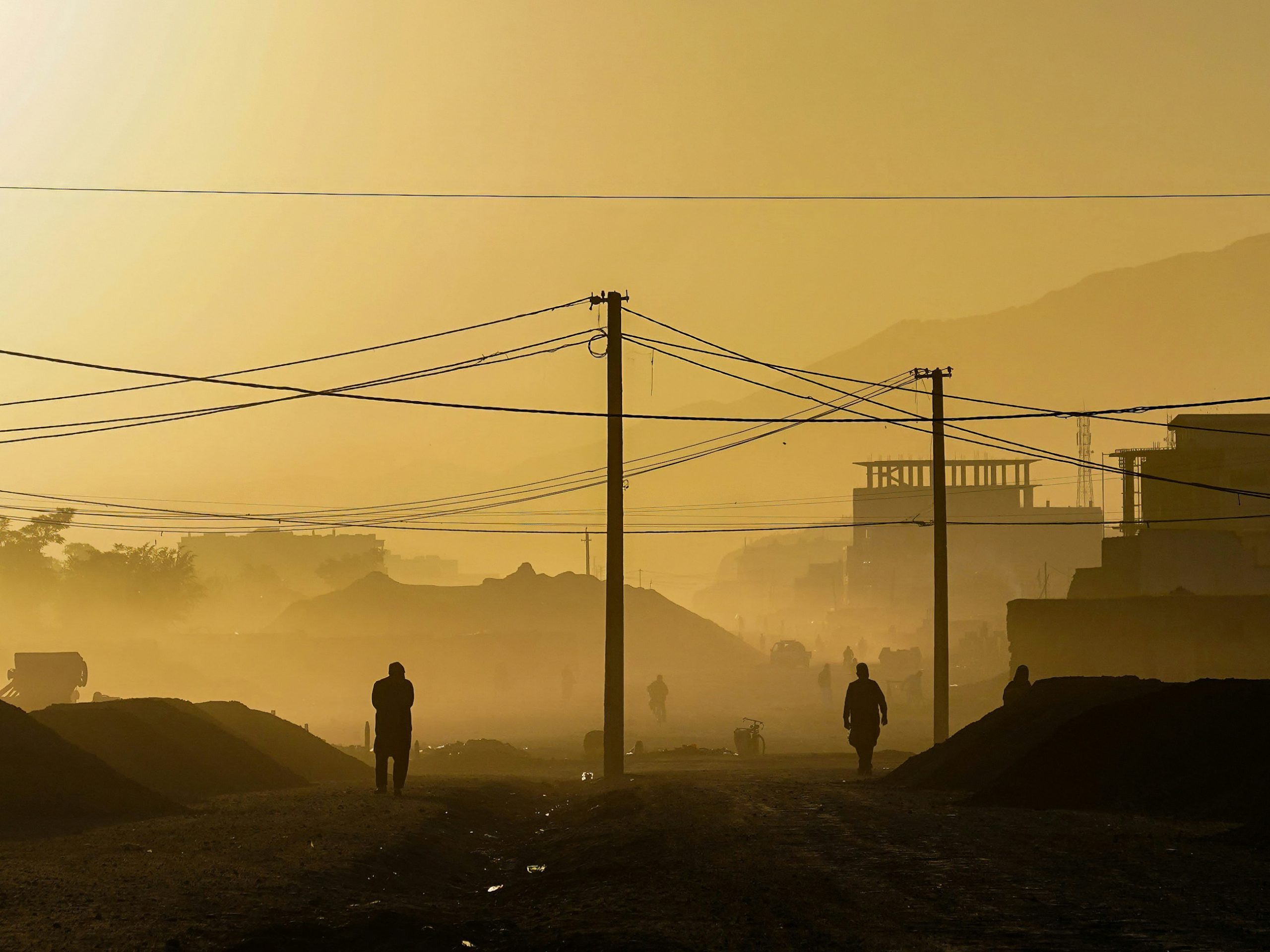It was 11 in the morning on Aug. 9, 2021, when Mohammed and his family entered a German-run clinic in Kabul to receive their COVID-19 vaccinations. Later that night, they were preparing to leave Afghanistan and fly off into an uncertain future.
Mohammed was born into a middle-class Pashtun family in 1993 in Nangarhar Province in eastern Afghanistan. “My uncle was in the army and my father owned a piece of property,” he says. “He was not a farmer, but he made a living by managing his land.”
Mohammed’s birth came amid civil war. The Soviet Union had withdrawn from Afghanistan in 1989 following a decade-long conflict against Islamist militant groups known as the Mujahideen. Different militant factions, including the Taliban, began fighting each other to gain control of the country. When the violence became unbearable for Mohammed’s family, they sought refuge in Pakistan.
“In 1994, after the civil war started in Afghanistan, we immigrated to an area called Mohmand Agency in Peshawar, Pakistan,” Mohammed remembers. “My grandmother told me that everyone from my village, day by day, was immigrating to Peshawar.”
Despite their newfound safety, life in Peshawar was hard for the family. Mohammed’s father found work as a day laborer at a marble factory while Mohammed went to a Pakistani school, learning Urdu and English.
“When you are in another country as an immigrant, life is not as easy for you as it is for other people,” he says. “Many of those around us, as well as the Pakistani government, were not supportive of us and other Afghan immigrants.”
After twelve years in Pakistan, Mohammed briefly returned to Afghanistan in 2006. By this time, the United States had invaded the country, ousting its Taliban rulers in 2001 and establishing a new Afghan government. But he soon returned to Pakistan, motivated by the prospect of a better education.
“Many Afghans went to Pakistan to earn their university degrees because the Afghani education system was still developing,” he explains. “If you had a Pakistani degree, there was a greater chance for you to get a better job in Afghanistan.”
Mohammed earned a two-year degree in computer science and returned to Afghanistan in 2013, settling in Jalalabad. However, he had come back at a difficult time. Rumors were swirling that Western troops would soon withdraw from the country, so many companies were panicking and not hiring anyone.
“In 2013, there was a transaction between the NATO and Afghan forces. This created a rumor that the U.S. and NATO were withdrawing from Afghanistan,” Mohammed says. “Everything got really bad because the rumor was spread to such a great extent. Everyone thought that Afghanistan would return to how it was in the 1990s.”
To make ends meet, Mohammed took a job as an administrative assistant at a construction company. By 2017, he was married and working as an IT specialist with a company that was contracted to work with the U.S. military. One day, an American police advisor came into the office and noticed Mohammed’s English skills.
The man referred Mohammed to a U.S. Army interpreter, and within two months, he also became an interpreter for the military. He was first stationed at Forward Operating Base (FOB) Gamberi, just outside of Jalalabad. Later, he was transferred to FOB Fenty, which was on the Jalalabad Airfield.
“I was translating military plans and missions, ciphers, and many other things for my American advisors,” Mohammed says. “I had a headset, and six to seven guys were listening to what I was translating for them.”
In 2018, Mohammed applied for a Special Immigrant Visa (SIV), which the U.S. government issued to interpreters for American forces in Afghanistan and Iraq. It took three years to secure an interview, and during that time, his status remained uncertain.
Soon after, Mohammed and his family — which now included two daughters — went to the Kabul clinic for their COVID-19 vaccinations. They later received unexpected news.
“I got an email that said, ‘Hey, you have a flight tomorrow at 9 a.m. The Taliban are coming to Kabul,’” Mohammed remembers. “The evacuation flight was only for those who had an SIV. In that email, I found out that I had received the SIV, so we were able to get on the flight.”
Mohammed and his family left Kabul on Aug. 10, 2021, just days before the Taliban conquered the city. They flew to Washington, D.C., and then on to Dallas, Texas. The family moved to Oregon two years later in the summer of 2023.
Mohammed has worked hard to provide for his family in the United States. He has moved between jobs, from working as an assistant teacher at an elementary school to driving for Uber and Lyft. Since July 2023, he has been studying for a certificate that will prepare him for an entry-level IT job. Mohammed’s wife has also been working hard, looking after their daughters and learning English.
“I am glad that I am safe in the United States. At least my daughters will get educated, because the Taliban has banned school for girls,” he says. “Yet, American life is very different compared to life in Afghanistan. Here, if you don’t work, or if you get down financially, it can be hard to get back up. So, it’s a tough life and a big change for me and my family.”
—
For the safety of Mohamad’s family, who are still in Afghanistan under the threat of Taliban’s rule, we are protecting their identity by using a generic image of Kabul, captured by a freelance photographer.

